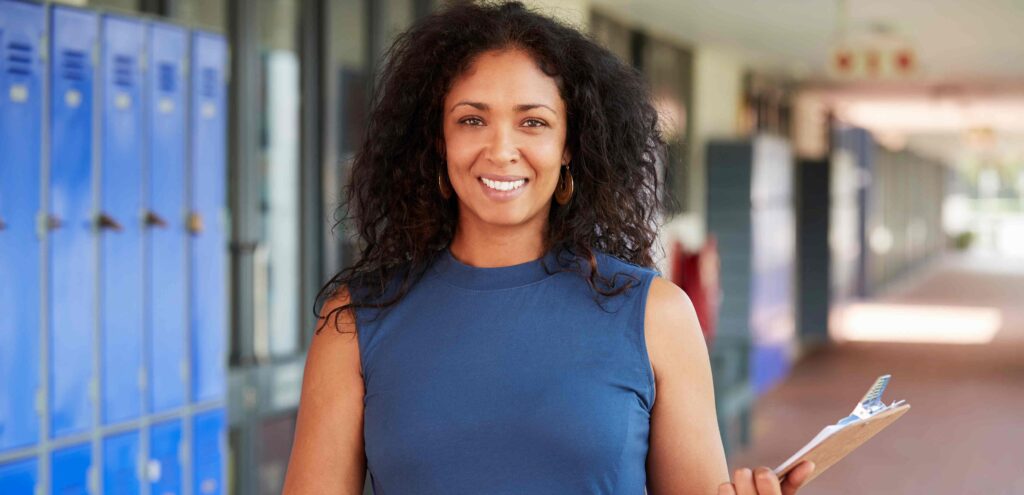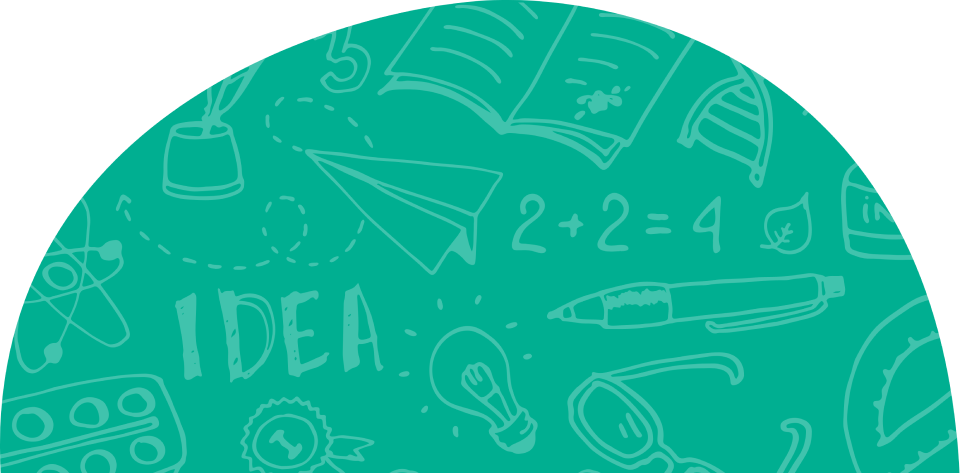
Are you gearing up to take the NYSTCE and secure your teaching certification in New York State? Look no further! Our complete 2024 overview of the NYSTCE is designed to assist you every step of the way. From the test’s structure and format, to registration, costs, and test prep strategies, we’ve got you covered. So let’s get started!
Subscribe to our NYSTCE catalog to access our full selection of personalized NYSTCE study guides. With instructional videos, practice tests, and test-strategies we’ve got everything you need to ace your exam!
$49.99/mo | Get Started – or – Take a Free Practice Test
What Is The NYSTCE?
The NYSTCE series are the required exams for teacher certification in New York, overseen by the New York State Education Department. These tests are designed to assess your readiness to teach effectively in New York’s diverse educational environments.
Who Needs to Take the NYSTCE?
All aspiring teachers in New York, whether recent graduates of teacher education programs or seasoned educators aiming for additional certifications, need to pass relevant NYSTCE tests. Depending on your intended teaching area—like elementary education or high school math—the tests you need to take will vary to match the specific skills required.
NYSTCE Test Categories
The New York State Teacher Certification Examinations (NYSTCE) are structured to cover a wide range of skills and knowledge areas essential for effective teaching. Each category is designed to test a specific set of abilities that are key for various teaching roles across New York’s classrooms.
Academic Literacy Skills Test (ALST)
This test evaluates your proficiency in critical reading and writing, essential skills for any educator. The ALST ensures that prospective teachers can effectively interpret written material and express themselves clearly in writing, both critical for teaching and communicating complex ideas to students and colleagues.
Educating All Students (EAS) Test
The EAS focuses on your understanding of and ability to teach diverse populations. It assesses your knowledge of different learning styles, special education, English language learners, and culturally responsive teaching.
Content Specialty Tests (CST)
These subject-specific exams cover a broad spectrum from mathematics and science to languages and arts. The CSTs are detailed tests that require in-depth knowledge of the subject you plan to teach. They are crafted to ensure that educators have a robust understanding of their subject matter which is vital for effectively teaching students and helping them build their knowledge progressively.
Multi-Subject Tests
Particularly important for elementary school teachers, these tests evaluate your ability to teach various subjects. They ensure that educators have a well-rounded teaching capability across different disciplines, which is crucial for imparting a comprehensive education to younger students.
Understanding the NYSTCE Structure and Format
The NYSTCE exams are designed to assess both your knowledge and your ability to apply that knowledge in practical teaching scenarios. Depending on the specific exam, they may feature multiple-choice questions and/or constructed-response items.
The length of the each exam varies. For instance, the ALST typically allows about three hours for completion, while CSTs can range from two to four hours depending on the complexity and the number of topics covered.
Some NYSTCE exams include components like video-recorded responses, notably the edTPA. In these assessments, you’re required to demonstrate your teaching style and interaction in a controlled environment. This part of the test evaluates your practical skills in classroom management and student engagement.
Registering for the NYSTCE
First things first, visit the official NYSTCE website and create your account. Input all your personal and contact information accurately—think of it as your first test! A small error here can cause big headaches later, so double-check every detail.
With your account ready, it’s time to pick the exam(s) you need based on the teaching certification you’re aiming for. Not sure which tests match your goals? No problem! You can easily verify your requirements through the New York State Education Department or consult your teacher preparation program for guidance.
Next, you’ll handle the financial part—paying your exam fees (which vary depending on the test) using a standard online payment method like a credit card. Then, choose your preferred test date and location. Quick tip: register early to get the best choice of dates and locations, making your test day as convenient as possible.
Understanding NYSTCE Costs
Each NYSTCE test, be it a Content Specialty Test (CST), the Educating All Students (EAS) test, or the School Building Leader (SBL) assessment, comes with its own price tag, usually ranging from around $100 to over $200. Always check the latest fees on the NYSTCE website to stay updated.
You may also want to plan financially for the possibility of retakes, which would mean paying the full exam fee again if you don’t pass on your first go. There might also be additional fees for changing registration details or ordering extra score reports.
Effective Study Strategies for the NYSTCE
Begin by immersing yourself in the specific format and content areas of the NYSTCE you are preparing for. Develop a thorough understanding of the question types, as well as the broad and specific content areas listed in the official NYSTCE test frameworks.
Selecting the Right Study Materials
Incorporate a mix of textbooks, comprehensive online courses, and detailed NYSTCE practice exams. Utilize these practice tests to not only get accustomed to the exam’s format and timing but also to identify areas needing improvement. Analyze your practice test results meticulously and revise your study plan as needed.
Strategic Study Planning
Craft a personalized study schedule that reflects your learning pace and prioritizes different subject areas according to your proficiency and the exam’s demands. Include dedicated slots for intensive review sessions and simulated full-length practice tests.
Collaborative Learning
Joining study groups or participating in online forums can also be incredibly beneficial. These collaborative environments allow you to exchange ideas, clarify doubts, and gain new perspectives.
Maintaining Well-being
Lastly, be sure to balance your study sessions with adequate rest and relaxation. Regular breaks and engaging in your favorite leisure activities can prevent burnout and keep your mind fresh. A well-rounded routine ensures that you remain focused and energized throughout your preparation period.
Test Day Tips for the NYSTCE
Taking the NYSTCE can be a nerve-wracking experience, but being well-prepared can significantly reduce your stress and enhance your performance. Here’s how you can navigate test day with ease and confidence.
Before You Head Out
Opt for comfortable, layered clothing to ensure you remain at ease, regardless of whether the testing room is too warm or too chilly. Being physically comfortable helps maintain your focus on the exam questions, not on your environment. Minimize distractions by leaving personal items like bags, electronic devices, and food outside the test room. Most testing centers offer lockers where you can safely store your belongings.
Carry a valid government-issued photo ID such as your driver’s license or passport. The name on your ID must match the one on your registration precisely. Bring proof of your test confirmation email. This will speed up the check-in process and prevent any last-minute complications.
Arrival and Setup
Aim to arrive at the test center at least 30 minutes before your appointment. This gives you ample time to check in, familiarize yourself with the testing environment, and settle in without having to rush. Take a moment to thoroughly understand the test center’s policies on breaks, restroom usage, and other procedural details.
Maintaining Focus and Energy
Eat a well-balanced meal before the test to keep your energy levels consistent. If permitted, bring snacks and water for scheduled breaks to stay hydrated and energized. Utilize simple relaxation techniques such as deep breathing or meditation to control pre-test jitters and maintain your focus.
Understanding NYSTCE Scores and Retakes
The scoring system for the NYSTCE may seem complicated at first glance – but it doesn’t have to be. Here’s what you need to know about NYSTCE scores.
The Anatomy of Your Score
The NYSTCE employs a scaled scoring system to maintain consistency across various test forms. This means your raw score (the number of questions you answered correctly) is converted into a scaled score that accounts for variations in test difficulty. Your responses to multiple-choice questions are scored electronically, ensuring swift and accurate tallying. Constructed-response items, such as essays or short answers, are assessed by seasoned educators who evaluate them based on standardized criteria.
Understanding the Passing Mark
The benchmark to pass the NYSTCE generally begins at 220, though it can differ based on the specific exam. Be sure to check the passing score for your particular test on the NYSTCE official site to know exactly what you need to aim for.
Score Reporting: Timing and Details
Typically, your scores will be available three to four weeks after you take the exam. You’ll receive an email notification once your scores are accessible online. To view them, simply log into your account on the NYSTCE platform. Each score report provides detailed feedback, including your pass/fail status and individual performance by section. This information is key to understanding your strong points and the areas that might need more work, especially if you consider retesting.
If You Need a Second Try
If you don’t pass on your first attempt, the NYSTCE retake policy requires a waiting period of typically 30 days. Use this time wisely to shore up your knowledge and skills in the areas where you didn’t perform well. Remember, you’ll need to register anew and pay the associated fee each time you retake the exam.
As you prepare for your retake, consider incorporating new study methods or resources. A well-prepared attempt could save money and move you closer to certification.
Once you’ve successfully passed the NYSTCE, your next steps include submitting your scores to the New York State Education Department and meeting any other requirements necessary for your certification. This might involve additional coursework or gaining teaching experience, depending on your specific certification path.
Your goal of becoming a certified educator in New York is not too far away. If you start preparing for the NYSTCE today, you’ll be well on your way to a new, rewarding career. So what are you waiting for?
NYSTCE Test Frequently Asked Questions (FAQ)
What is the NYSTCE?
What is the NYSTCE?
The New York State Teacher Certification Examinations (NYSTCE) are a series of exams designed to ensure that prospective educators possess the knowledge and skills necessary to teach in New York State public schools.
Who needs to take the NYSTCE?
The NYSTCE is required for individuals seeking a teaching certification in New York, including both new teachers and current teachers seeking additional certifications.
How are the NYSTCE exams scored?
NYSTCE exams use a scaled scoring system, where your raw score is converted to a standard scale. For tests with constructed-response sections, responses are scored by educators in the subject area.
What constitutes a passing score for the NYSTCE?
Passing scores vary depending on the specific test, but they are often around 220 on a scale of 100 to 300.
Can I retake an NYSTCE exam if I don’t pass?
Yes, you can retake the test, but there’s a mandatory waiting period (usually 30 days) between attempts. You’ll need to re-register and pay the fees again.
What should I bring to the NYSTCE test center?
Bring a valid, government-issued photo ID and confirmation of your test appointment. Personal items like phones are usually not allowed in the testing room.



